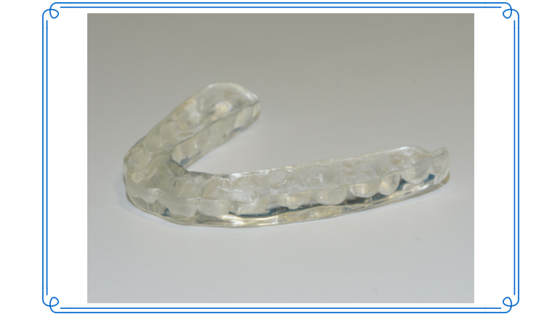
Many people unknowingly clench and/or grind their teeth while they sleep. This is known as nocturnal bruxism. This can lead to headaches, toothaches or jaw and muscle pain and even tooth fracture. In addition, chronic teeth grinding can cause a lot of damage to the teeth and jaws. While it’s not always possible to ‘cure’ this habit, you can protect your teeth from further damage by using an occlusal splint.
Occlusal splints (also known as nightguards) are removable dental appliances customised to fit the surface of your teeth. They are made of hard acrylic resin and may be used on the upper or lower teeth. They effectively act as a barrier between teeth, preventing from grinding against each other and even out the biting area to help relax muscles in the head and neck area caused by grinding.
Bruxism can also be an indication of other more serious conditions, such as obstructive sleep apnoea (OSA). If you also suffer from snoring or excessive daytime sleepiness, please let us know.
Teeth grinding is also common in children, and may be an indication of airway obstruction. Adults with OSA typically suffer from daytime sleepiness, but a tired child is often cranky, loud and inattentive in school. It has also been shown that chronic sleep deprivation in children can lead to developmental delay and ADHD. If you notice your child grinding, they may need a referral to an ear-nose-throat (ENT) specialist to assess their airway.
Caring for your occlusal splint:
- Take it out in the morning and give it a brush with a soft toothbrush – do not use toothpaste as this can abrade the surface of the occlusal splint. Allow to air-dry.
- Store in the plastic container provided.
- Replace if broken or bitten through.
Tags: #Featured on Home Page